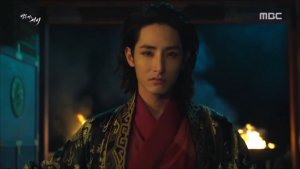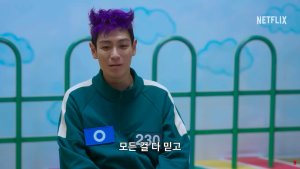 Dissecting HIStory: Part 2
Dissecting HIStory: Part 2
Cults. They are one of humanity’s most terrifying and fascinating phenomenons. It’s no wonder that OCN, a channel which has hosted some of South Korea’s grittiest, darkest dramas, would air a show like Save Me, which focuses on a cult by the name of Guseonwon and how this cult impacts, and in many cases ruins, the lives of the people they ensnare. With a premise like that, I couldn’t help but watch this drama.
Today’s main question is this: how realistic is Save Me’s cult? What I’m choosing to focus on is how Guseonwon indoctrinates members and if this group fulfills a checklist of common cult characteristics.
It’s probably news to you but there is actually an easy 8-step process you can follow to indoctrinate someone into a cult. Cults across the planet tend to follow very similar processes to reel in new members. We know this because, as with every cult, there are defectors. One of those many defectors was Michael Bluejay, a man who used to be part of Aesthetic Realism but left the group and chose to write about his experiences as a member. One piece he wrote detailed how Aesthetic Realism drew in new recruits. Before we dive into the process though, there’s something else I have to address: who cults target.
Cults go for who they think they can draw in the easiest. They will make an attempt at anyone, but they love people who are timid or feel out of place. They might pick a new college student, someone who’s new to a town, or people who are in need. They wouldn’t make a serious attempt at someone who is confident or is in a position of power or independence (unless it’s a group like Scientology but they’re a separate beast). This is important to know for what comes next.
Caution: MAJOR SPOILERS for Save Me ahead!
Step One: invite the target to a non-threatening event
What would you say if someone walked up to you and promised you God-like abilities, so long as you cut off all connections with your family and hand over all your money and free will? Most people would run screaming. So, rather than give potential members the whole, terrifying story right away, cults try to get targets to agree to something far more innocent. Maybe they invite the target to a party or promise them free tickets to a show or a movie. The goal is to get you to say yes to something, anything.
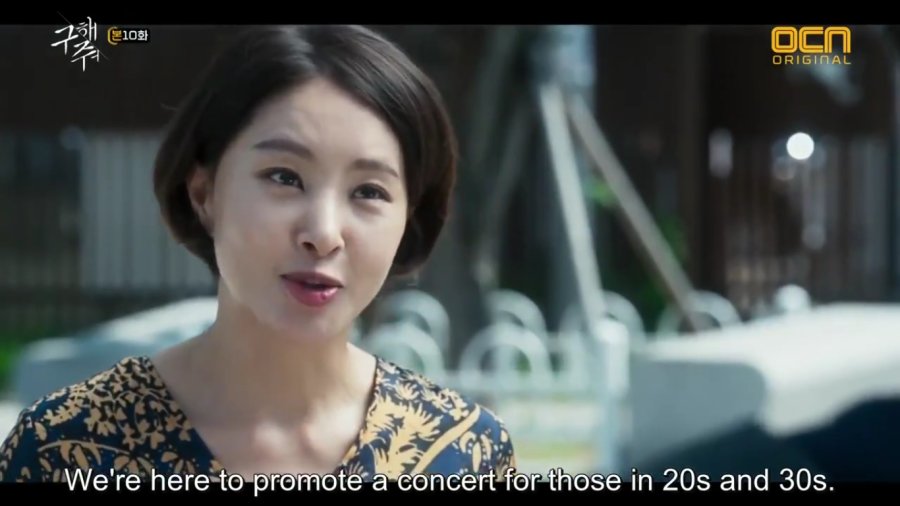
In the case of Save Me, this is exactly what happens to Dong Cheol. Apostle Kang knew who to look for. Dong Cheol wore a nerdy disguise, with oversized glasses and a backpack. He looked nervous and out-of-place. She offers him tickets to a concert, which is her "non-threatening event". He fills out her questionnaire and gets into their van without much fuss. Mission accomplished.
Step Two: love-bombing
This step involves showering targets with love. Suddenly, the lonely and/or out of place recruit is surrounded by people that “care” about them. This step makes it hard for the recruit to leave the group. If everyone around them acted crazy right out of the gate, it would be a huge turnoff. Cultists fake it until they make it to keep people involved.
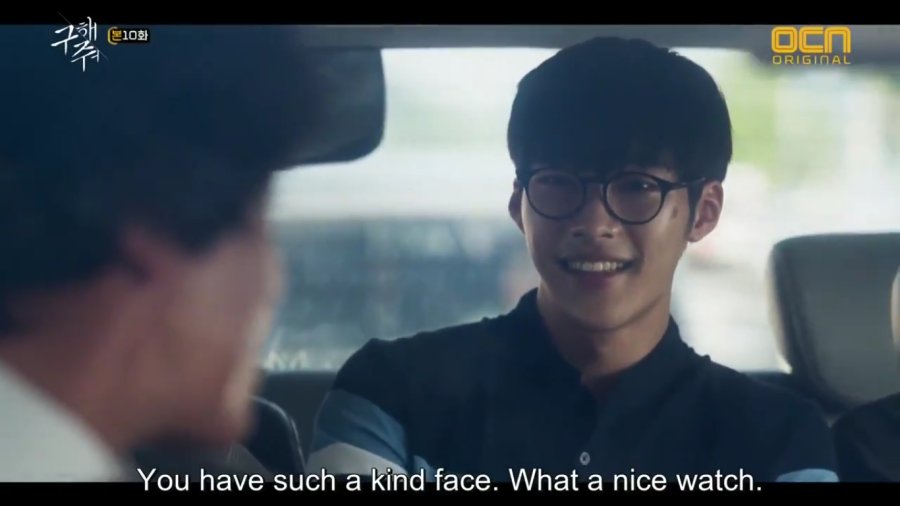
In Save Me, the love-bombing happens almost as soon as Dong Cheol meets Apostle Kang. When he sits down to fill out her questionnaire, she mentions how “pure” he looks, and So Rin says he has kind eyes. At the end of episode 10, even though Baek has no chance of converting Sang Hwan, he mentions how “pure” he looks, too. People offer to eat with and do nice things for Dong Cheol. Even when asking about Apostle Jo’s hilarious perm, he receives a compliment. They want Dong Cheol so they lay the kindness on thick.
Step Three: dangling the “prize”
No one would join a cult without thinking they’ll get something from it, whether it be going to heaven, having eternal life, or getting rich. The cultists need to have something they know you want to keep you coming back. Without it, you have no reason to be there. So, they make sure there’s something sweet that will come from being a part of their group.
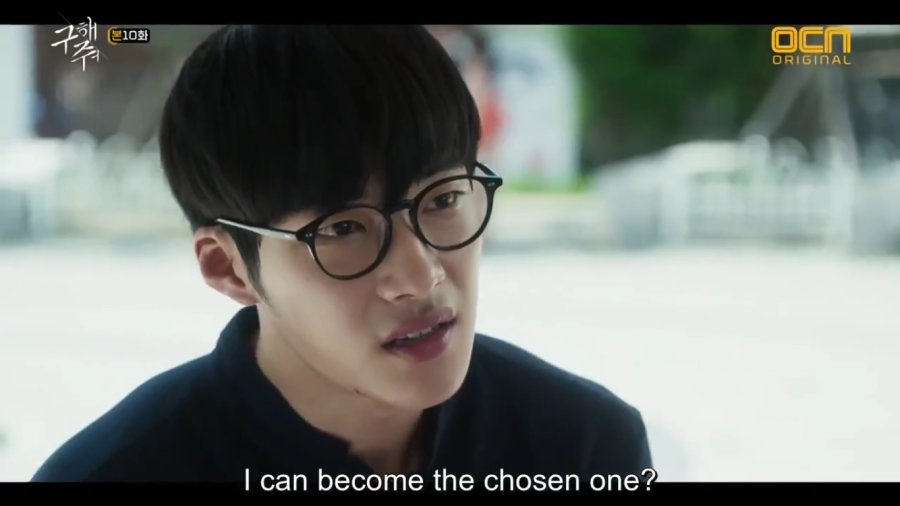 They drop this bomb right away, with Kang telling Dong Cheol that he can become “the chosen one” by getting involved in Guseonwon. He quickly agrees and jumps into their van. Throughout the show, they speak about guiding members onto the Boat of Salvation (which looks suspiciously like Noah’s Ark, minus the animals). Later on, Apostle Jo pulls Dong Cheol aside and tells him that, with enough faith, he can bring his family onto the Boat of Salvation, too. The people of Guseonwon even say that their Spiritual Father is able to cure disease with his Life Water (spoiler: it’s foot water).
They drop this bomb right away, with Kang telling Dong Cheol that he can become “the chosen one” by getting involved in Guseonwon. He quickly agrees and jumps into their van. Throughout the show, they speak about guiding members onto the Boat of Salvation (which looks suspiciously like Noah’s Ark, minus the animals). Later on, Apostle Jo pulls Dong Cheol aside and tells him that, with enough faith, he can bring his family onto the Boat of Salvation, too. The people of Guseonwon even say that their Spiritual Father is able to cure disease with his Life Water (spoiler: it’s foot water).
Step Four: extracting an agreement from you that you want the prize
The goal is to keep you coming back, so they need to hold you accountable. They want you to feel bound to the group by getting you to admit to yourself that you want the “prize”. Who wouldn’t be interested in immortality or riches? If they can get you to say you want it, then it feels less intrusive.
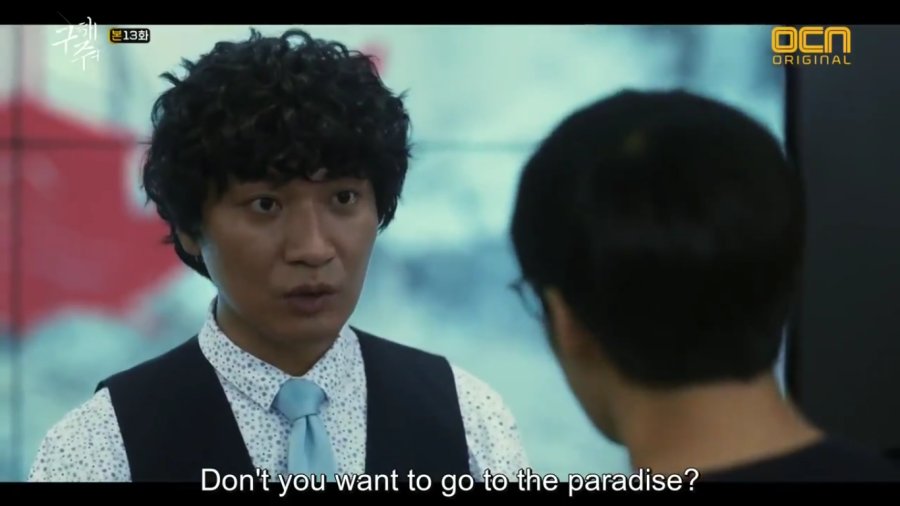
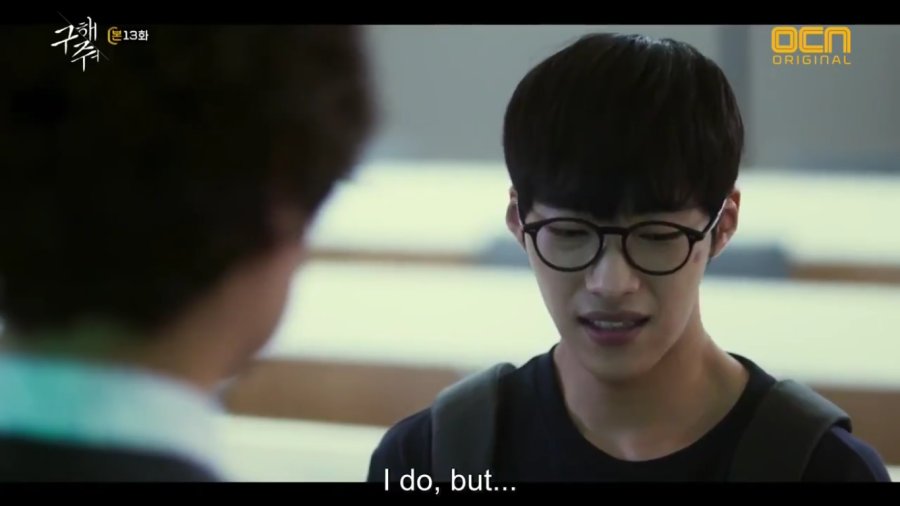
Dong Cheol admits to wanting to ride the Boat of Salvation. Even though he’s acting to get further into the cult in order to save Sang Mi, I can’t help but feel that he is really drawn to the group. In this way, the group is actually pretty effective. At another point, the Spiritual Father appeals to Dong Cheol’s rough past, getting him to admit to wanting to be released from his intense anger and memories of his terrible teenage years.
Step Five: shutting down dissent by threatening to withhold the prize
This is the point where things start to become sinister. You’ve already admitted that you want the prize but now the cultists reveal that it won’t be easy to achieve. Maybe you have to start studying or attending classes. Maybe you have to pray frequently or will be required to live in the organization’s living quarters. Maybe you have to adopt more extreme beliefs or actions.
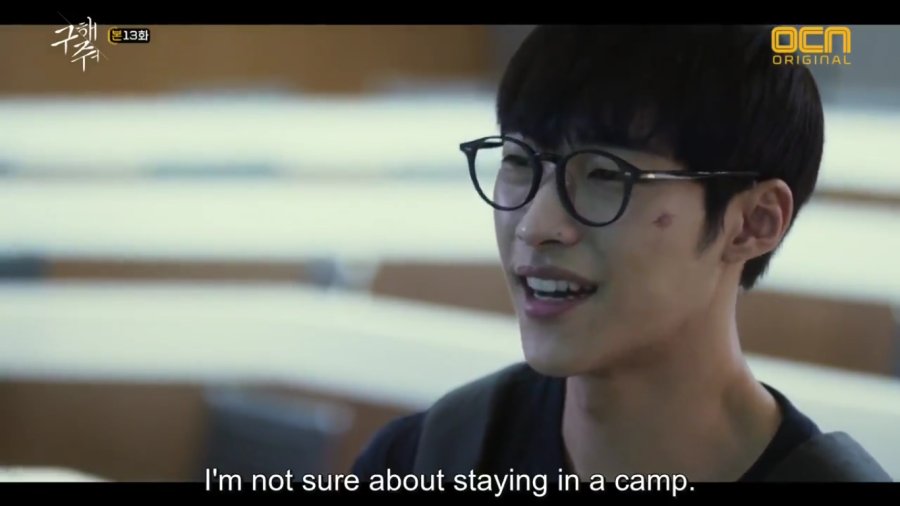
All of the above happen to Dong Cheol at one point or another. He finds out that, in order to become an official member of the church, he’ll have to go to a church-sponsored “camp” where he’ll be “trained”. There is a hefty fee as well. He is, of course, not too excited about having to spend money to live with people he knows are crazy, and he expresses this trepidation. Apostle Jo instantly shuts him down. Jo tells him that neither Dong Cheol nor his family will be able to be saved if he doesn’t go to the camp to further his indoctrination. If Dong Cheol doesn’t do something he doesn’t want to do, he won’t get the prize. He also has to go to classes and on group trips. Baek demands that Dong Cheol pray to be released from his suffering. He is even threatened with blindness for looking at the Spiritual Mother or Father, meaning he has to revere them as if they, mere mortals, were gods. The kitchen is heating up but Dong Cheol can’t leave.
Step Six: establishment of guilt
To get you to do more outlandish, extreme things, they establish guilt to make you more susceptible to further manipulation. They can’t have strong-willed people; those are the types that ask too many questions. By making you feel guilty for going against the cult’s doctrine, they make what they see as transgressions seem more personal. It’s your fault your life is terrible. You are the one who doesn’t respect the Spiritual Father enough. You are the reason your family will go to Hell. You work to follow their rules to relieve yourself of the guilt they've sown.
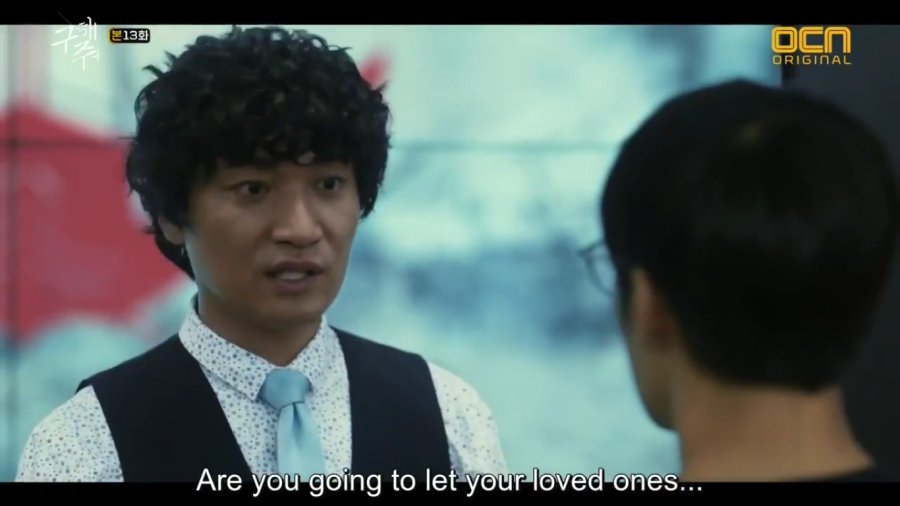
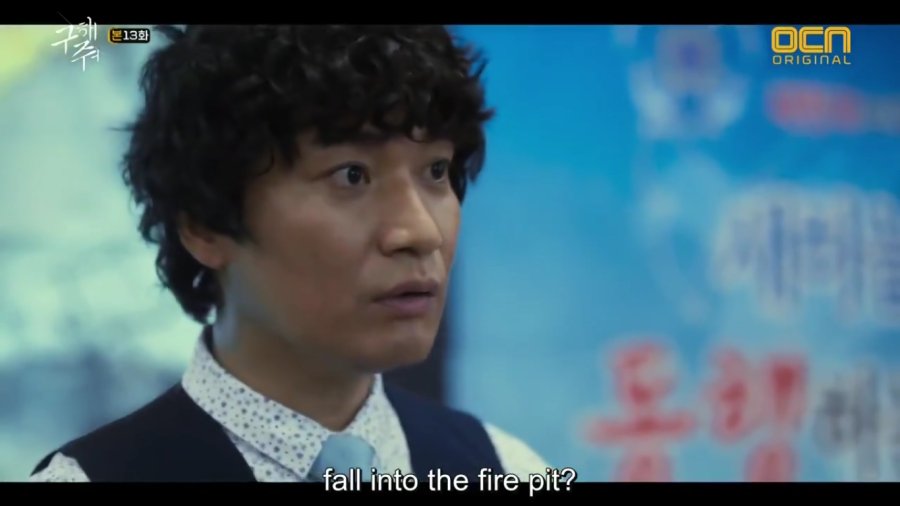
As with the previous example, Apostle Jo shames Dong Cheol for his nervousness about going to the “camp”, claiming that his family will burn in Hell for his selfishness. Throughout the show, church members threaten Sang Mi and her family with Sang Jin, her dead brother, not being allowed to go to Heaven if they don’t “behave”. While this threat means nothing to Sang Mi, it works on her parents. The cult’s most common leverage used against members is revoking passage onto the Boat of Salvation.
Step Seven: carrot and stick
This part involves training cultists like dogs. When your cult member worships you like you want, you pay them with compliments and privileges. When your cultist breaks your rules, you take away freedom and cause them harm. Reward the good behaviors, punish the bad ones, just like you would when training a pet.
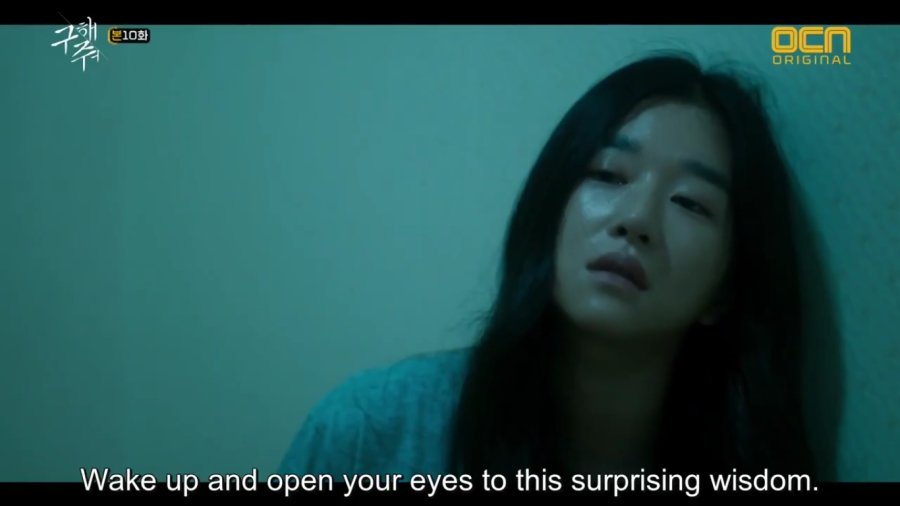 We see this primarily with Sang Mi. When she’s “bad” and tries to escape the church’s grip, she gets to starve in the prayer dungeon. When she finally decides to be “good” and pray, she gets food and a real bedroom. Later on, we’re shown an underground bunker filled with people who went against church doctrine and are beaten and starved until they “repent”. When Dong Cheol proves that he’s a good, dedicated cultist, he gets a “promotion”. Guseonwon does an excellent job of grooming members into the image they want.
We see this primarily with Sang Mi. When she’s “bad” and tries to escape the church’s grip, she gets to starve in the prayer dungeon. When she finally decides to be “good” and pray, she gets food and a real bedroom. Later on, we’re shown an underground bunker filled with people who went against church doctrine and are beaten and starved until they “repent”. When Dong Cheol proves that he’s a good, dedicated cultist, he gets a “promotion”. Guseonwon does an excellent job of grooming members into the image they want.
Step Eight: control of identity, information, and environment
If you can’t communicate with the outside world, you’re effectively trapped. If they can control what information you hear, they can shape what you believe. If they can morph your identity by taking away certain privileges and your freedom (like how you dress or style your hair), then they can control who you are. If they can keep you trapped inside their little world, then there’s no escape. You’re stuck.
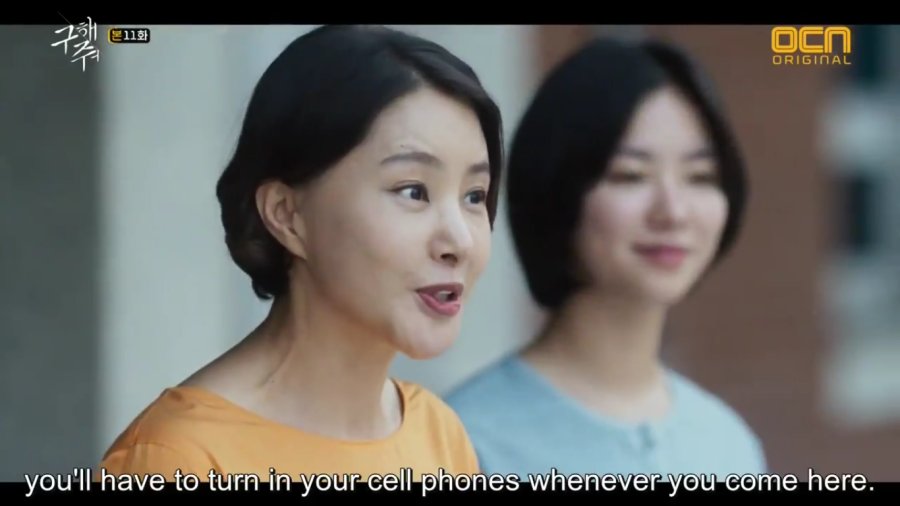
Even though this is the final step on this list, it’s actually something Guseonwon does much earlier in their indoctrination process. As soon as Dong Cheol and his group get to the church, the Apostles collect their cell phones. Sang Mi isn’t allowed her phone for the majority of the show. Many church members live inside the Guseonwon compound and aren’t often exposed to the outside world. New recruits have to go to a rather long camp to become full members, which means spending an extended period of time with the cultists and away from the rest of the world. People outside Guseonwon are seen as "devils" that should be feared. The cult leaders stoke a fire of fear and a mightier-than-thou attitude within their walls, and it works.
It seems like Guseonwon is the ideal cult, considering how it seems to fulfill every step outlined by Michael Bluejay, though out of order. The other topic for today, though, is whether or not Guseonwon follows all the other patterns of cult behavior. Thankfully, there’s a handy checklist of “Characteristics Associated with Cultic Groups” available from the International Cultic Studies Association. Though the ICSA doesn’t refer to this checklist as the end-all-be-all of figuring out if a group is a cult, it can be useful to analyze a group’s behavior. So, I looked at the list, and Guseonwon fulfills almost every characteristic. Here they are:
The group displays excessively zealous and unquestioning commitment to its leader and (whether he is alive or dead) regards his belief system, ideology, and practices as the Truth, as law.
See: sprinkling Spiritual Father’s foot water on food and the extreme reverence of Spiritual Mother and Father.
Questioning, doubt, and dissent are discouraged or even punished.
See: locking people in the prayer dungeon under the church or in the underground bunker in the woods, regular beatings for dissenters in the bunker, and Sang Mi having food and bedroom privileges taken away.
Mind-altering practices (such as meditation, chanting, speaking in tongues, denunciation sessions, and debilitating work routines) are used in excess and serve to suppress doubts about the group and its leader(s).
See: when Sang Mi’s father beats her in front of the congregation because she’s “possessed”, the group’s habit of praying in gibberish, and when Baek preaches and the group becomes all wiggly and screamy.
The leadership dictates, sometimes in great detail, how members should think, act, and feel (for example, members must get permission to date, change jobs, marry or leaders prescribe what types of clothes to wear, where to live, whether or not to have children, how to discipline children, and so forth.)
See: the blue outfits that many of the cultists wear (but not all, strangely enough), how most of the cultists live inside the Guseonwon compound, and the group’s insistence on being “pure” and respecting the spiritual leaders.
The group is elitist, claiming a special, exalted status for itself, its leader(s), and members (for example, the leader is considered the Messiah, a special being, an “avatar” or the group and/or the leader is on a special mission to save humanity).
See: their claim to be able to lead people onto the Boat of Salvation and their belief that looking at the Spiritual Mother/Father when uninitiated will cause blindness.
The group has a polarized us-versus-them mentality, which may cause conflict with the wider society.
See: members fear the outside world as being full of “devils” that need saving.
The leader is not accountable to any authorities (unlike, for example, teachers, military commanders or ministers, priests, monks, and rabbis of mainstream religious denominations).
See: there are no consequences for cult behavior due to most of the police force and politicians being in cahoots with Guseonwon.
The group teaches or implies that its supposedly exalted ends justify whatever means it deems necessary. This may result in members participating in behaviors or activities they would have considered reprehensible or unethical before joining the group (for example, lying to family or friends, or collecting money for bogus charities).
See: Kang’s claim that white lies are okay if it means leading people to Guseonwon.
The leadership induces feelings of shame and/or guilt in order to influence and/or control members. Often, this is done through peer pressure and subtle forms of persuasion.
See: the threat of family not going to heaven laid out on Jeong Goo’s grandmother, Sang Mi, and Dong Cheol.
Subservience to the leader or group requires members to cut ties with family and friends, and radically alter the personal goals and activities they had before joining the group.
See: Sang Mi forced to become the Spiritual Mother.
The group is preoccupied with bringing in new members.
See: Kang and her troupe constantly hanging out on street corners to hand out flyers and offer concert tickets.
The group is preoccupied with making money.
See: the old man with cancer handing over all his possessions to the church and the constant stream of donations from cultists.
Members are expected to devote inordinate amounts of time to the group and group-related activities
See: the church parties that are regularly thrown, nightly church services, and how people often live and work solely within the compound.
Members are encouraged or required to live and/or socialize only with other group members.
Not really. Guseonwon actually wants members to try to convert anyone within an arm’s length.
The most loyal members (the “true believers”) feel there can be no life outside the context of the group. They believe there is no other way to be, and often fear reprisals to themselves or others if they leave (or even consider leaving) the group.
See: Kang’s fear and upsetness at herself (not at Baek) when she realizes that he was able to hold a burning Bible with his bare hand due to a protective goop he’d put on his hand.
So, based on this list and how Guseonwon indoctrinates, it appears that this group is an almost perfect cult, reaching textbook levels of accuracy in how they behave. Honestly, I think it’s really cool that the writers went through this amount of trouble to be accurate. I always appreciate when writers do their homework. I honestly wasn’t expecting everything to fit so neatly so I really am impressed. I hope we get to see more dramas that delve into topics like religions and cults in an accurate, unique, and interesting ways, just like Save Me. I’d definitely watch.
Thank you so much for reading. I love doing this sort of real-world breakdown of KDramas. I find it super interesting, and if you guys have any recommendations for shows I could analyze for realism, comment below! I'd be glad to look at what you would like to see me talk about! Thanks again! See you!
[Some links to check out: Cult checklist - Indoctrination guide]



